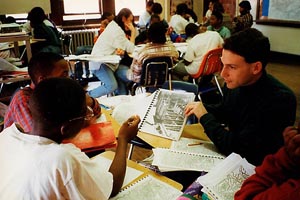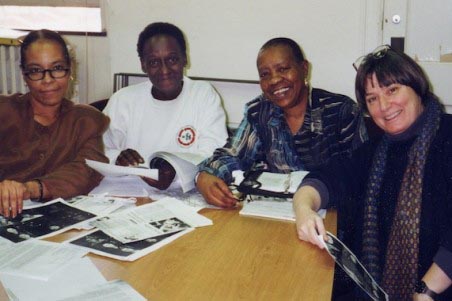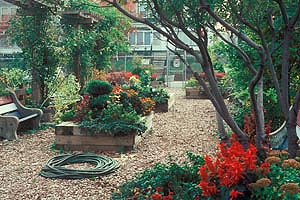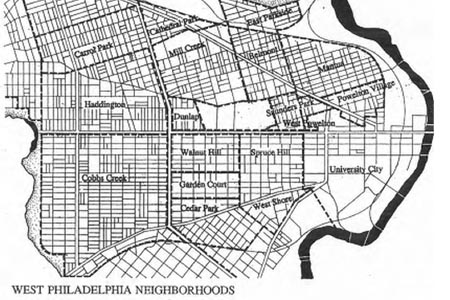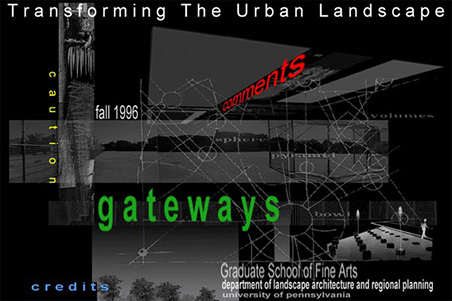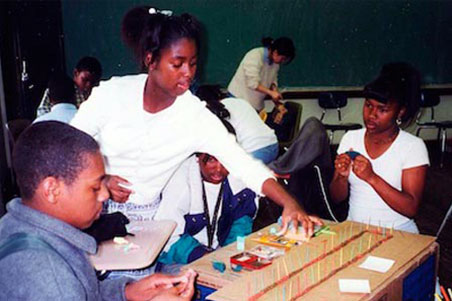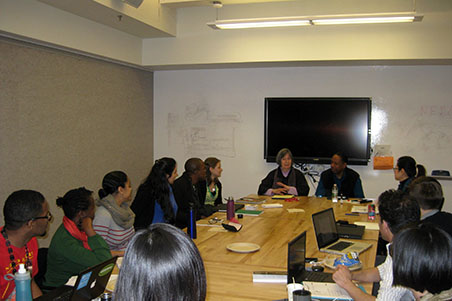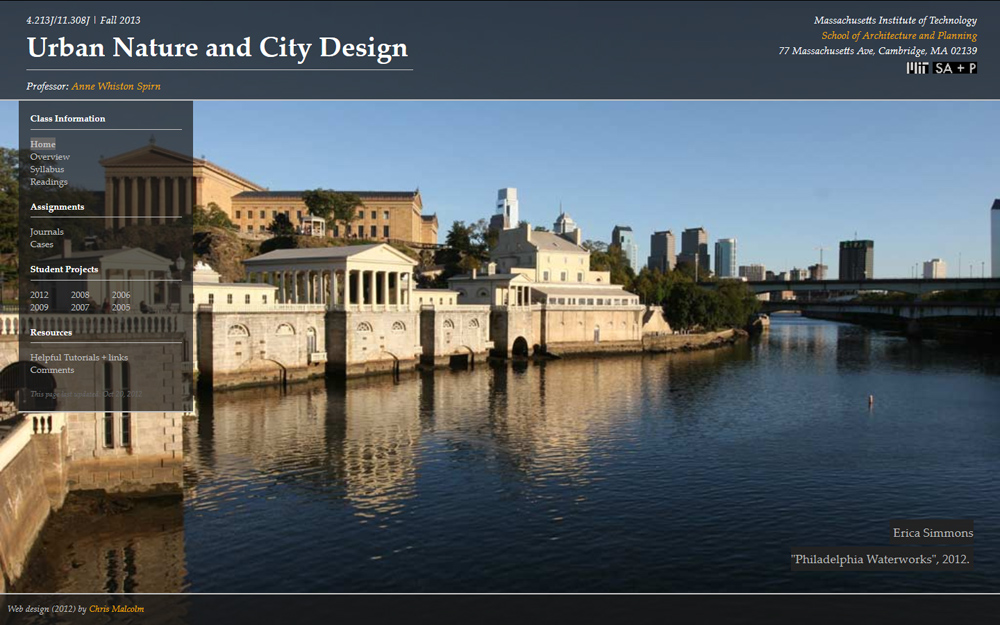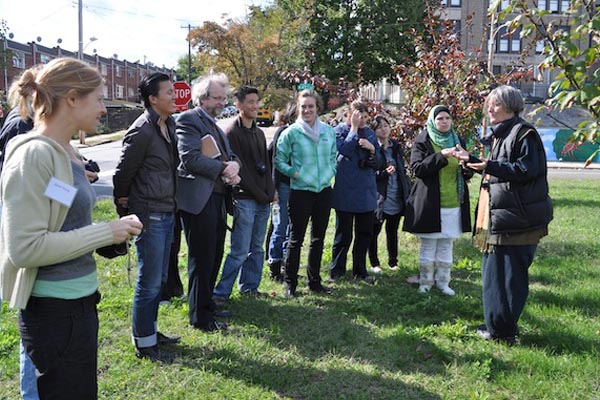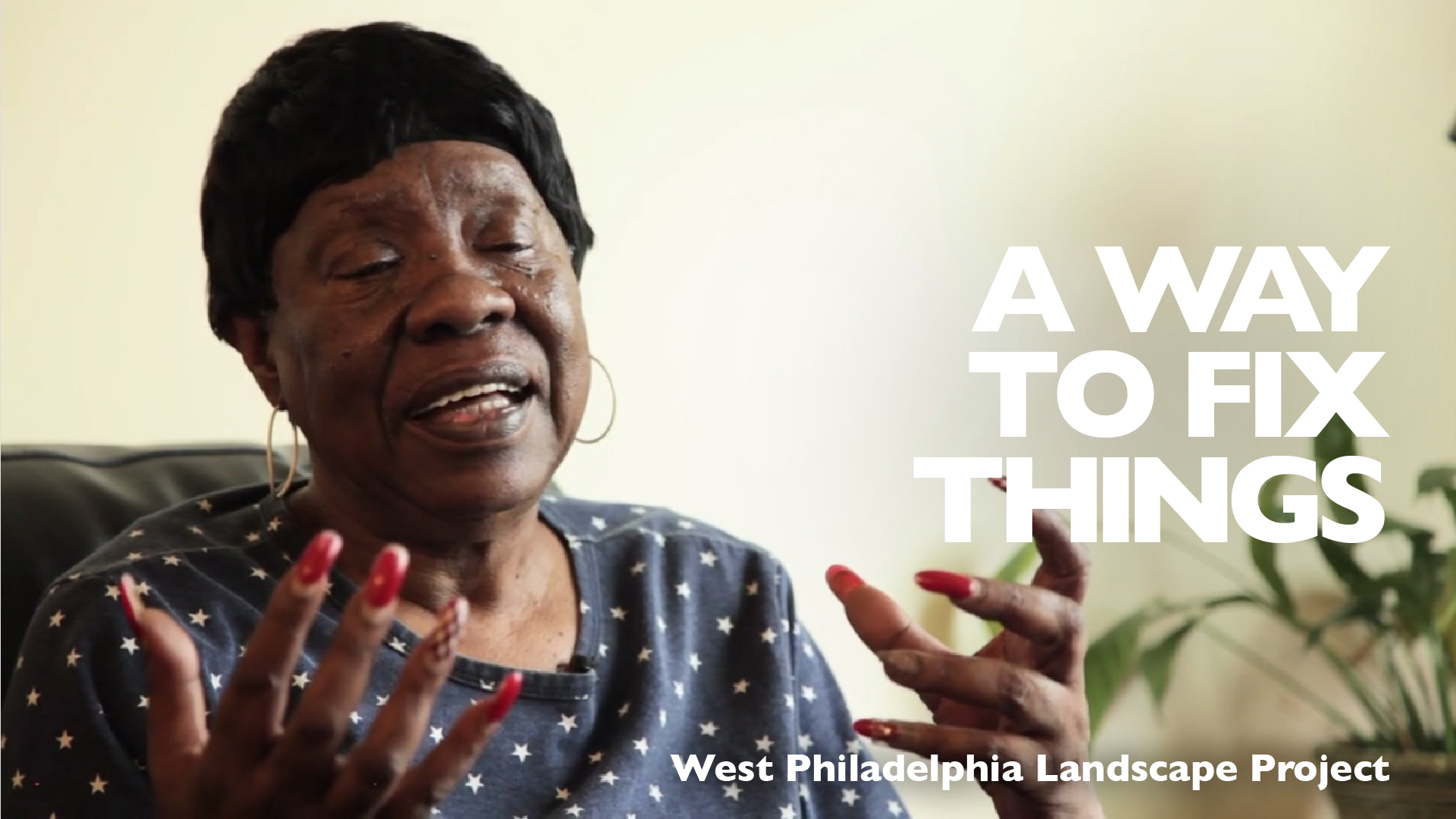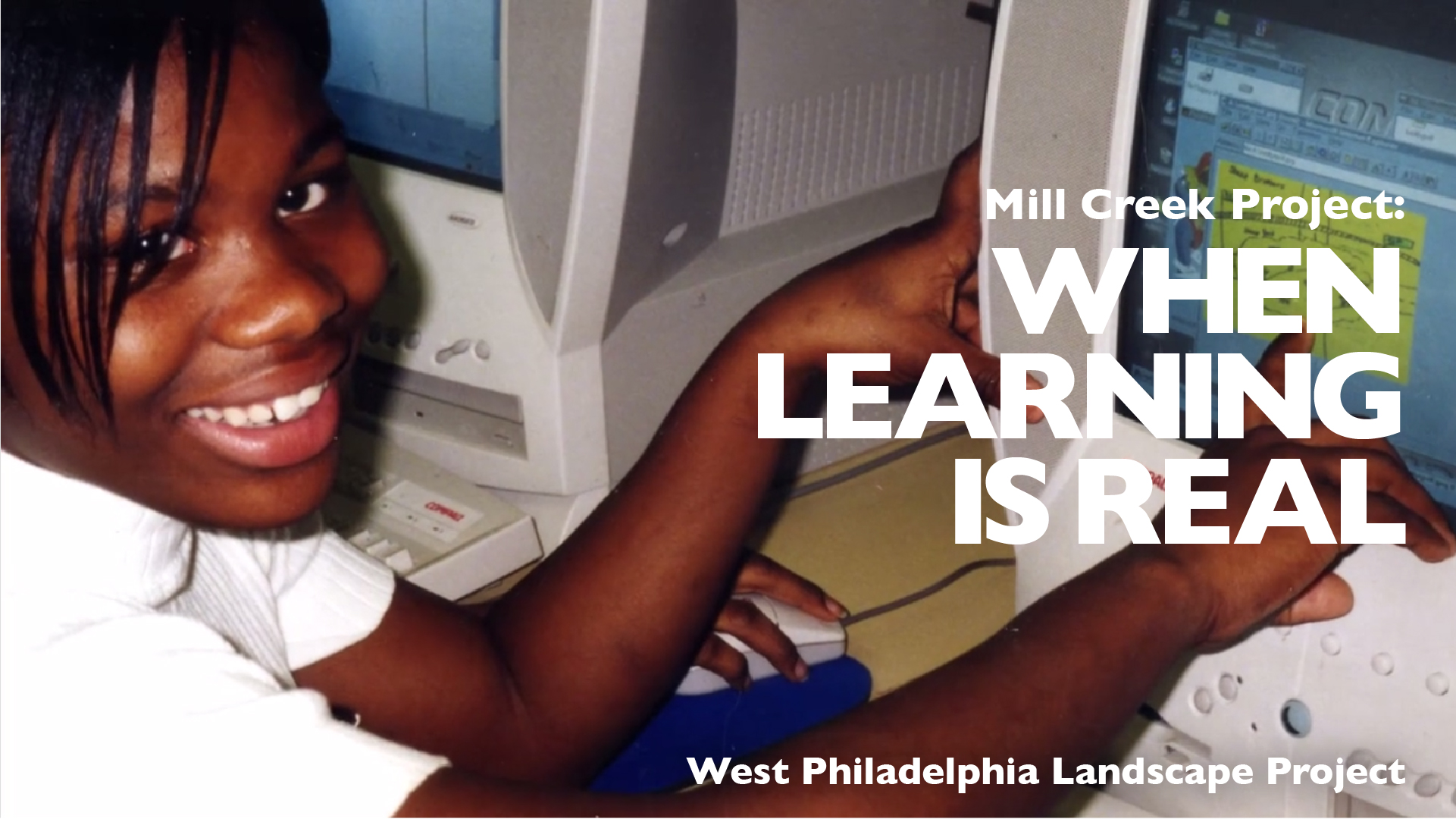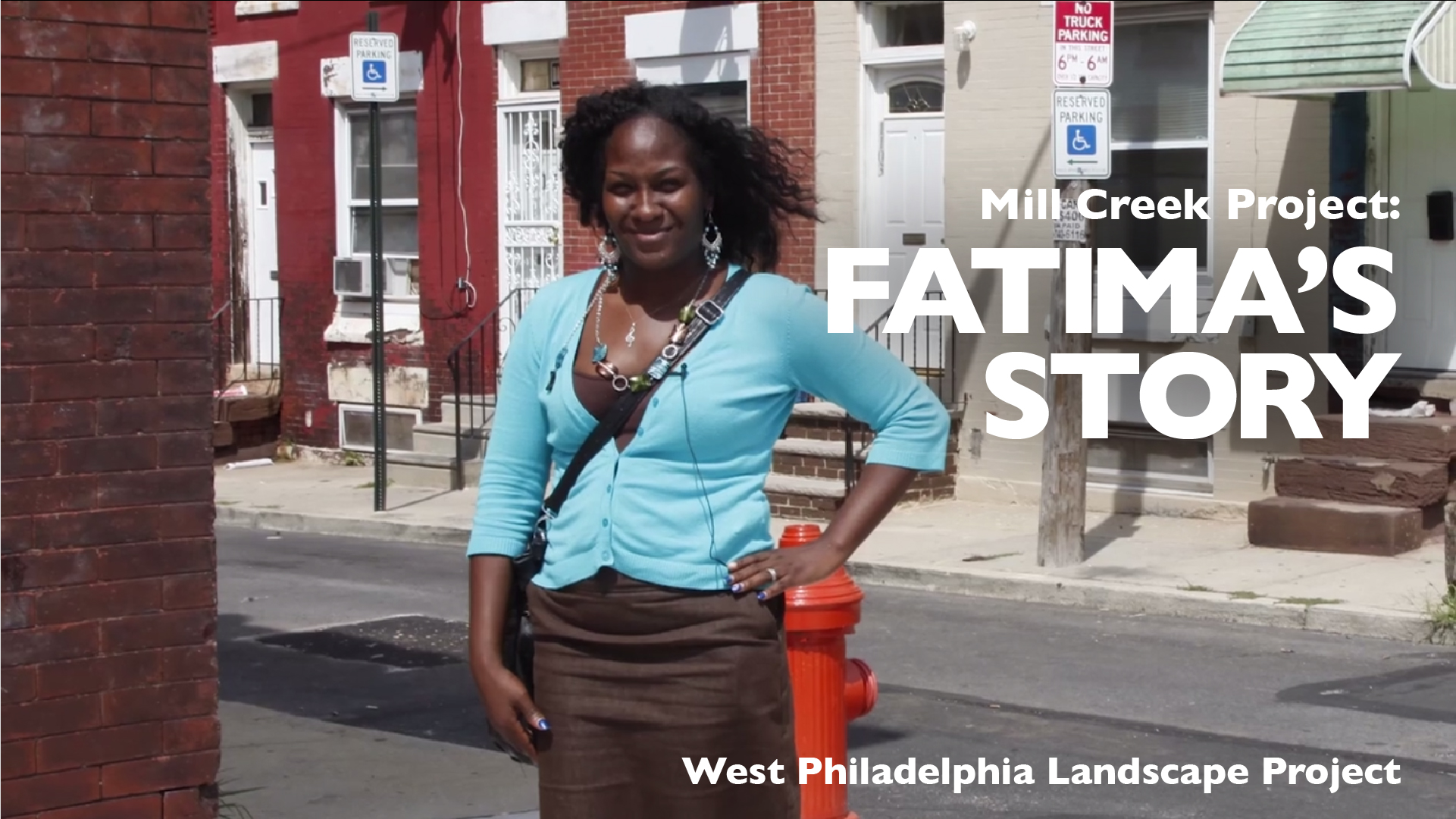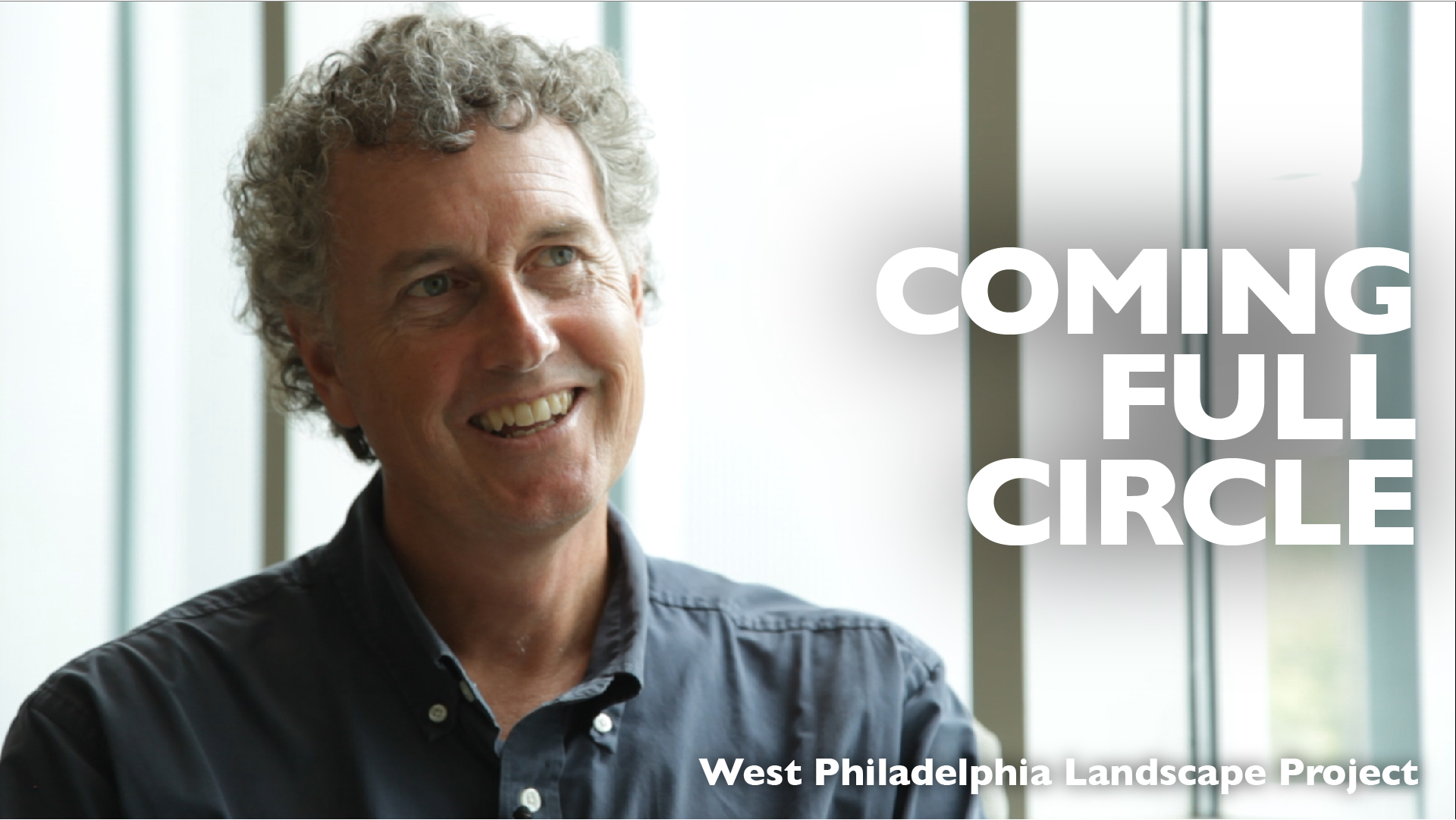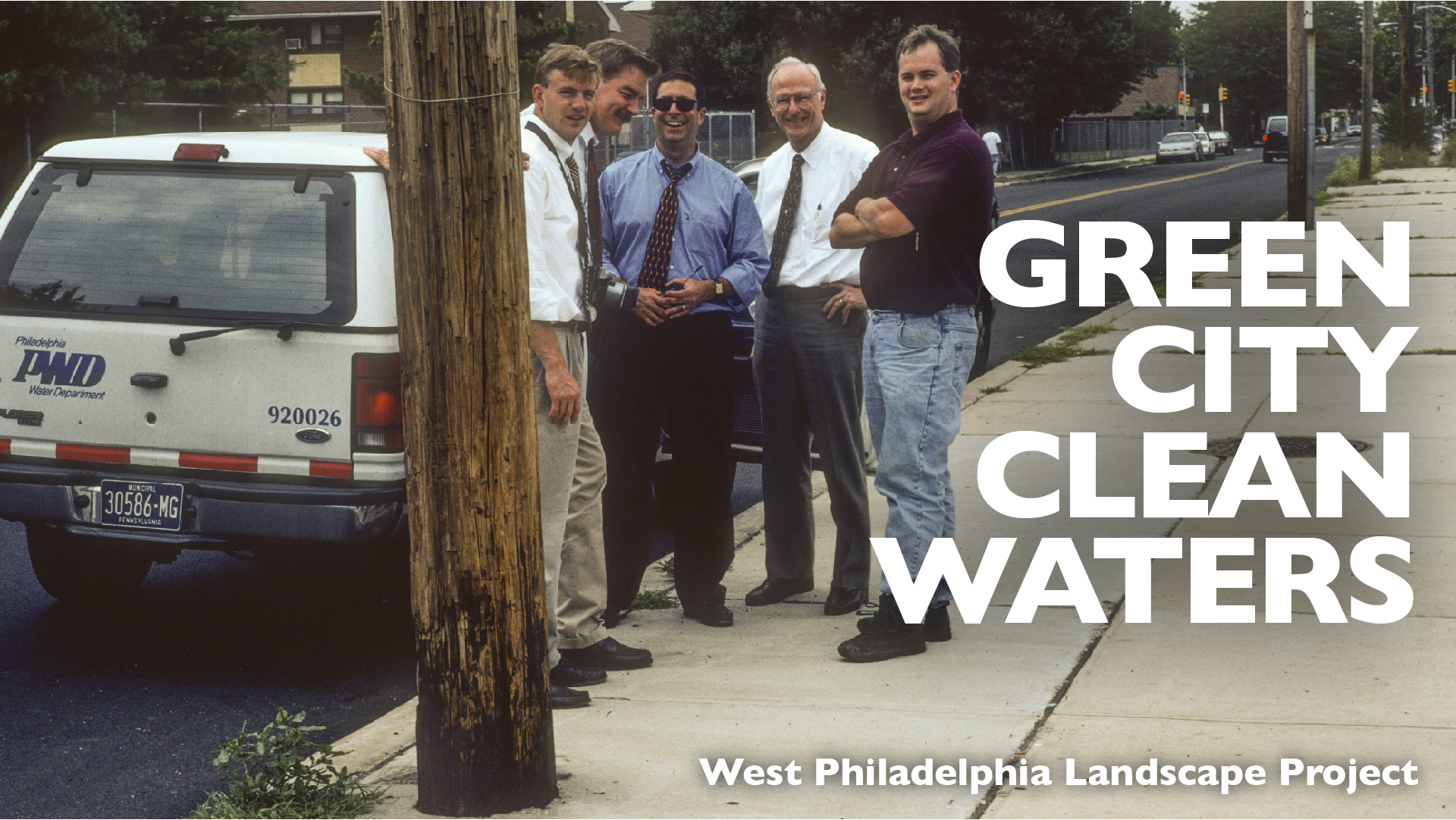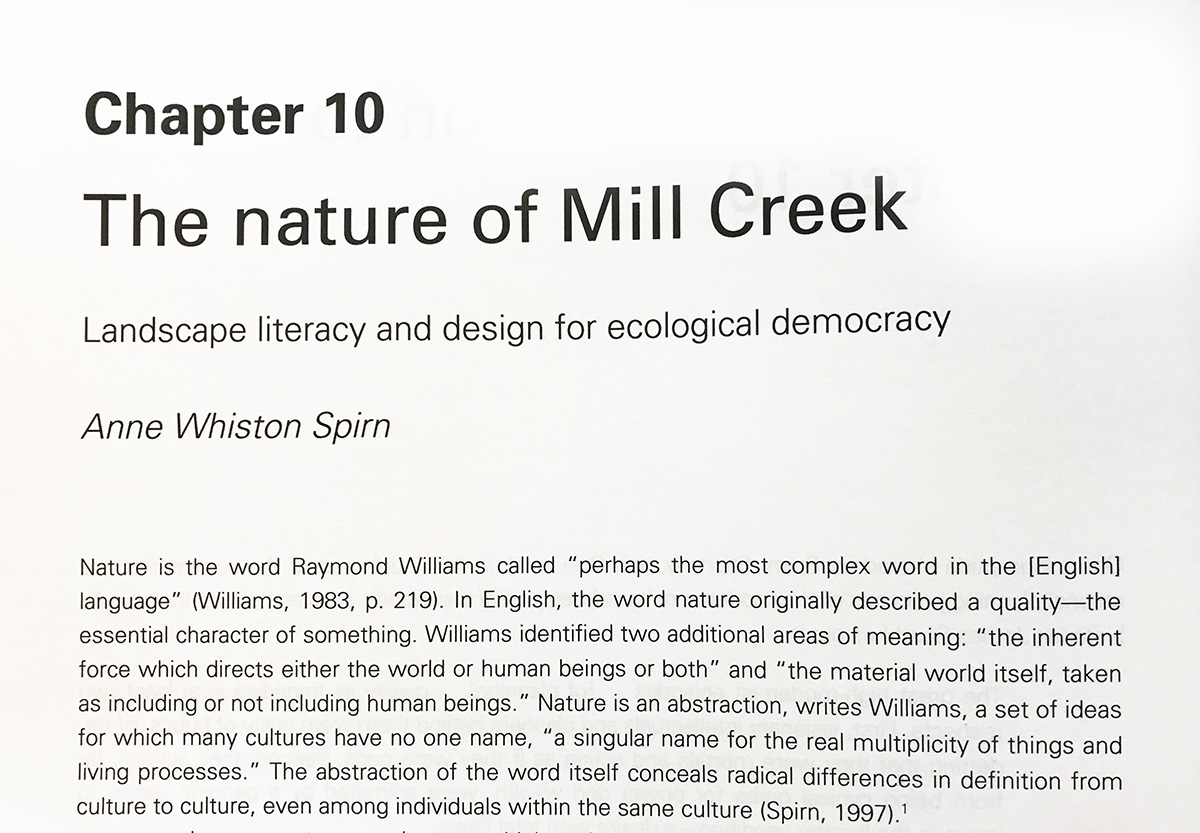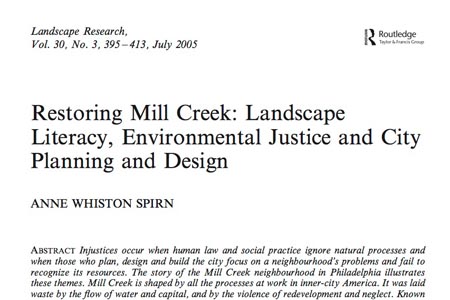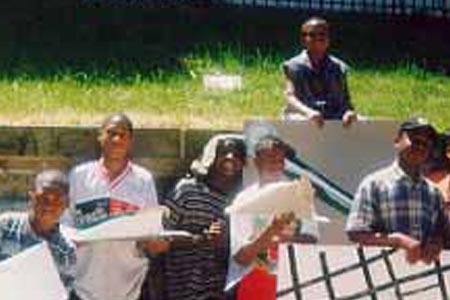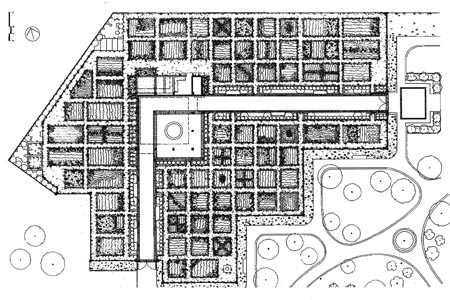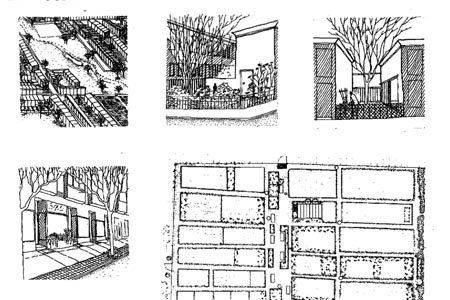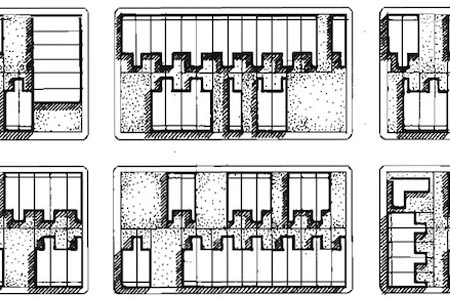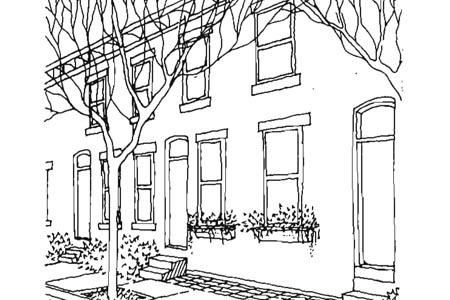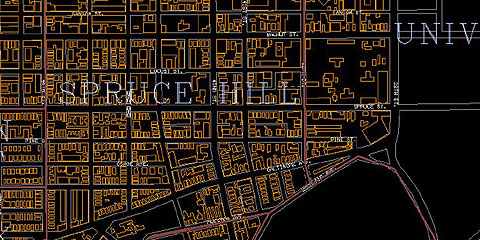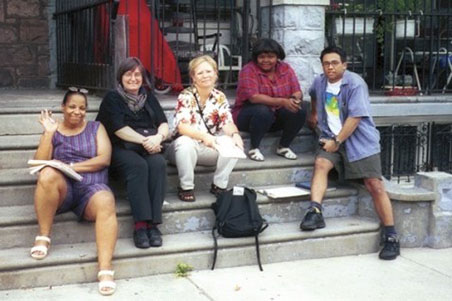
From 1987-1991, WPLP worked with community gardeners and staff of Philadelphia Green and the Organization and Management Group to design and build gardens and blockscapes, and we advocated for an integrated approach to environmental restoration and community renewal.
One of WPLP's earliest and long-running partnerships is with Aspen Farms, a community garden at 49th and Aspen Streets, located on the buried floodplain of the former Mill Creek. In 1988, students and faculty from Penn, staff of Pennsylvania Green, and the gardeners collaborated in the redesign and reconstruction of Aspen Farms. The experience with Aspen Farms and other community gardens in Philadelphia informed the West Philadelphia Landscape Plan, a series of five reports that demonstrate how redesigned urban space can serve as a catalyst for larger physical and social renewal. Two reports, "This Garden is a Town" and "Models of Success: Landscape Improvements and Community Development", explore how local residents have shaped their local community through landscape projects like Aspen Farms.
Through long-term community engagement, WPLP and residents of the Mill Creek neighborhood have wed professional expertise with local knowledge to create projects that improve the physical environment and express our shared values and goals for the future. We advocate for an environment that is beautiful, sustainable, and just. We invite community members to join us in designing the future. Through mutual teaching and learning, we seek to build knowledge and the capacity to envision and accomplish change.
In 1995, WPLP Director Anne Spirn and Hayward Ford, President of Aspen Farms, initiated a collaboration with teachers at Sulzberger Middle School, located at 48th and Aspen Streets. The following year, WPLP and Sulzberger Middle School started the Mill Creek Project, an educational partnership that brought together Penn students and middle schoolers from Sulzberger. From 1996 to 2001, Penn students led classes at Sulzberger, in which children learned about the urban watershed and history of their community and developed their own visions for the future. WPLP, Sulzberger, and Aspen Farms joined forces in 1997 and 1998 to launch a summer program, where Sulzberger students designed and constructed a new Butterfly Garden and Vegetable Garden at Aspen Farms, studied the urban watershed, and produced a Website, SMS News, to describe their activities. The collaboration between WPLP and Sulzberger continued until 2002, when key teachers left the school.
The Mill Creek Project with Sulzberger Middle School led to further engagement with parents and adults in the Mill Creek community, including a partnership with the Mill Creek Coalition, which led, in turn, to joint research on flood damage in the neighborhood, to a community education project, and to cooperation between the Mill Creek Coalition and the Philadelphia Water Department.
Engagement has continued, though with less intensity since the relocation of WPLP staff to MIT in 2000, the departure of key Sulzberger teachers in 2002, and the recent death of community leaders, such as Hayward Ford of Aspen Farms and Crystal Cornitcher of the Mill Creek Coalition. New leadership has emerged at Aspen Farms, which continues to host WPLP staff and students, and new relationships have formed, as with the Earthkeepers, an organization for high school students. Meanwhile, old relationships persist across time and distance.
